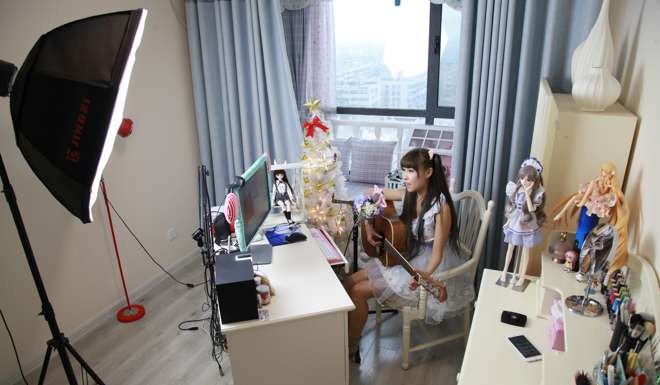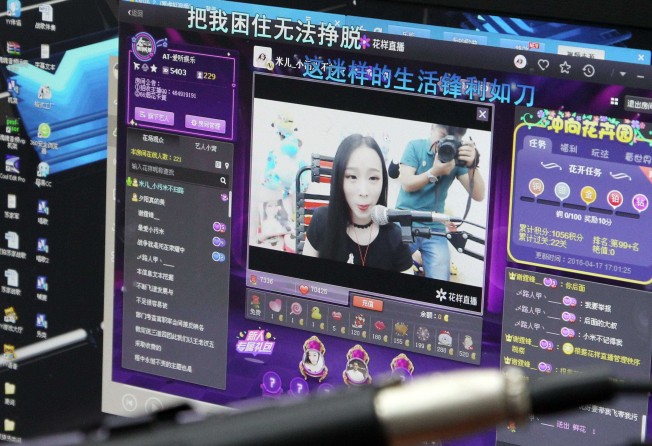
Citing eroding standards of taste, China says all live-streaming providers must obtain licences
Applicants must be state-owned or state-controlled and have 10 million yuan in registered capital, watchdog says, as it cracks down on content deemed vulgar or erotic

China’s press and entertainment watchdog has demanded content providers in the thriving online live-streaming sector obtain a licence to operate, a move that some observers say could stifle the services.
The order came as a senior regulatory official lashed out at the platforms, accusing them of broadcasting live “vulgar and even erotic content”.
Ren Xianliang, deputy director of the State Administration of Press and Publication, Radio, Film and Television, said on Friday that the “vulgar” content on the services “deviated from the core values of socialism, diluted mainstream ideology and crossed the line of a civilised online environment”, according to a statement on the administration’s website.
Ren said that if standards were allowed to continue to slide, the services would seriously contaminate cyberspace and have a negative influence on internet users’ outlook on life, values and the world.
The criticism echoed the administration’s demands last month that websites step up monitoring of live streaming and onscreen comments.
Under the administration’s new order, live-streaming platforms must apply for a “ network broadcasting licence” to do live broadcasts.

A similar directive was issued for internet television two years ago.
Yan Zhanmeng, a director of technology research firm Counterpoint Research, said the authorities were determined to minimise the amount of uncensored live broadcasts.“But it is a difficult task,” he said. “This goes beyond an industry regulation.”
Live streaming is extremely popular on the Chinese mainland, running the gamut from sporting events to eccentric personalities with their own shows.
But now all of the providers must be licensed if they want to stream individual live shows or news, variety, sports, interviews or current affairs programmes.
Prior permission from provincial authorities will also be needed to broadcast major live political, military, economic, social or cultural events.
Nearly 600 firms had obtained the licences by May but other applicants that had not already done so could struggle to obtain the paperwork.
To qualify, applicants must be state-owned or state-controlled and have 10 million yuan (HK$11.6 million) in registered capital, according to a report by China International Capital Corporation.
Bigger streaming companies might get around the rules by teaming up with a company that already has a licence, but smaller players might be pushed out of the market, according to report.
In a separate development, four executives of Shenzhen-based online video sharing company Qvod have been jailed for spreading pornography for profit.
Among those sentenced in the Haidian District People’s Court was Qvod Technology chief executive Wang Xin, who was sentenced to 3½ years behind bars and fined 1 million yuan (HK$1.16 million).
Three other executives were sentenced to between three years and three years and three months, and fined between 200,000 yuan to half a million yuan.